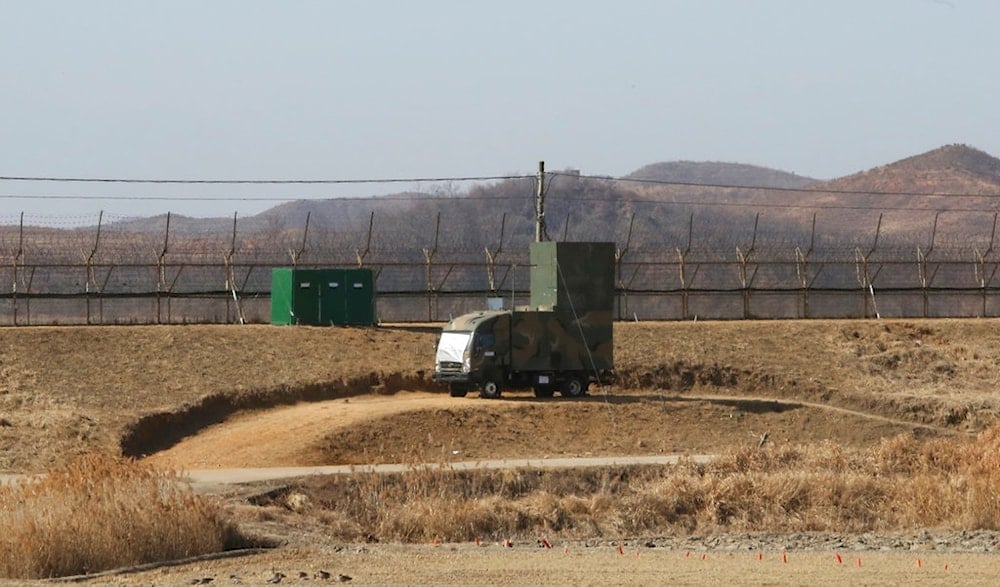South Korea embarks on removing loudspeakers from DPRK border
South Korea begins dismantling DMZ loudspeakers as President Lee Jae Myung moves to ease tensions and improve ties with the DPRK.
-

In this Feb. 15, 2018 photo, a South Korean military vehicle with loudspeakers is seen in front of the barbed-wire fence in Paju, near the border with the Democratic People's Republic of Korea. (AP)
South Korea announced Monday it began dismantling border loudspeakers that broadcast K-pop and news into the DPRK, as Seoul's new government seeks to reduce tensions with its northern neighbor.
In June, following the election of President Lee Jae Myung, Seoul's military announced that the nations, still technically at war, had already stopped propaganda broadcasts across the demilitarized zone.
In June, South Korea reported that Pyongyang had ceased broadcasting strange, disruptive noises along the border, which had grown into a significant annoyance for South Korean residents, just one day after Seoul turned off its loudspeakers.
"Starting today, the military has begun removing the loudspeakers," spokesman of the South's defence ministry, Lee Kyung-ho, told reporters on Monday, noting that the measure comes as an attempt to reduce tensions with the DPRK.
He also stated that all border loudspeakers would be dismantled by the end of the week, though he did not specify how many would be removed.
'Restoring trust'
Following the impeachment of his predecessor over a failed martial law declaration, the newly elected President Lee ordered the military to halt the broadcasts as part of an effort to "restore trust".
Pyongyang sent a wave of trash-laden balloons across the border last year after South Korean activists sent propaganda leaflets to the DPRK. The previous administration then initiated the loudspeaker broadcasts in retaliation, but President Lee, seeking to ease tensions and foster better ties with the DPRK, pledged to halt them.
Breaking from the prolonged stalemate under his predecessor, Lee has expressed his willingness to engage in unconditional talks with the North. The DPRK has yet to accept dialogue with its southern neighbor, with the Deputy Department Director of the Publicity and Information Department of the Workers' Party of Korea, Kim Yo Jong, stating, "If the ROK... expected that it could reverse all the results it had made with a few sentimental words, nothing is more serious miscalculation than it."

 2 Min Read
2 Min Read








